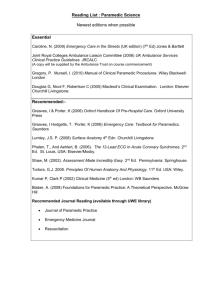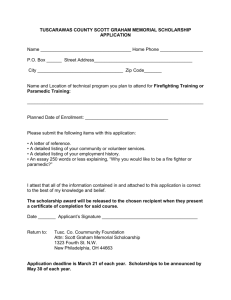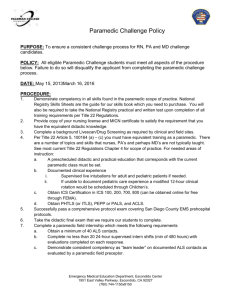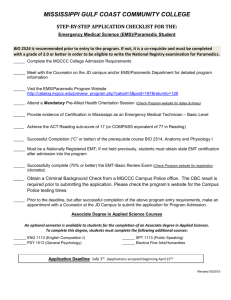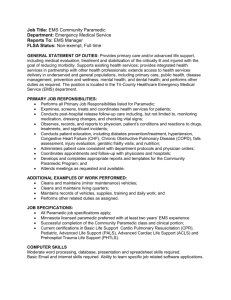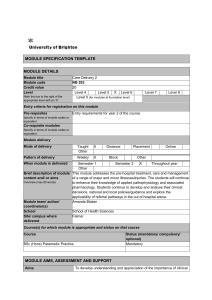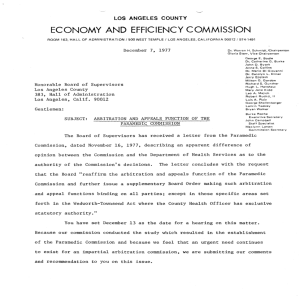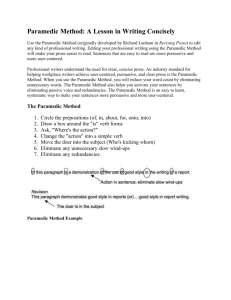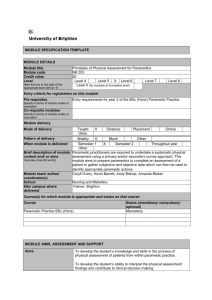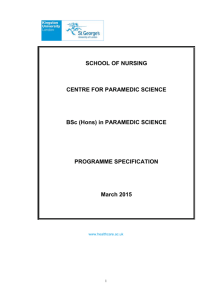Typical day on the road transcript
advertisement
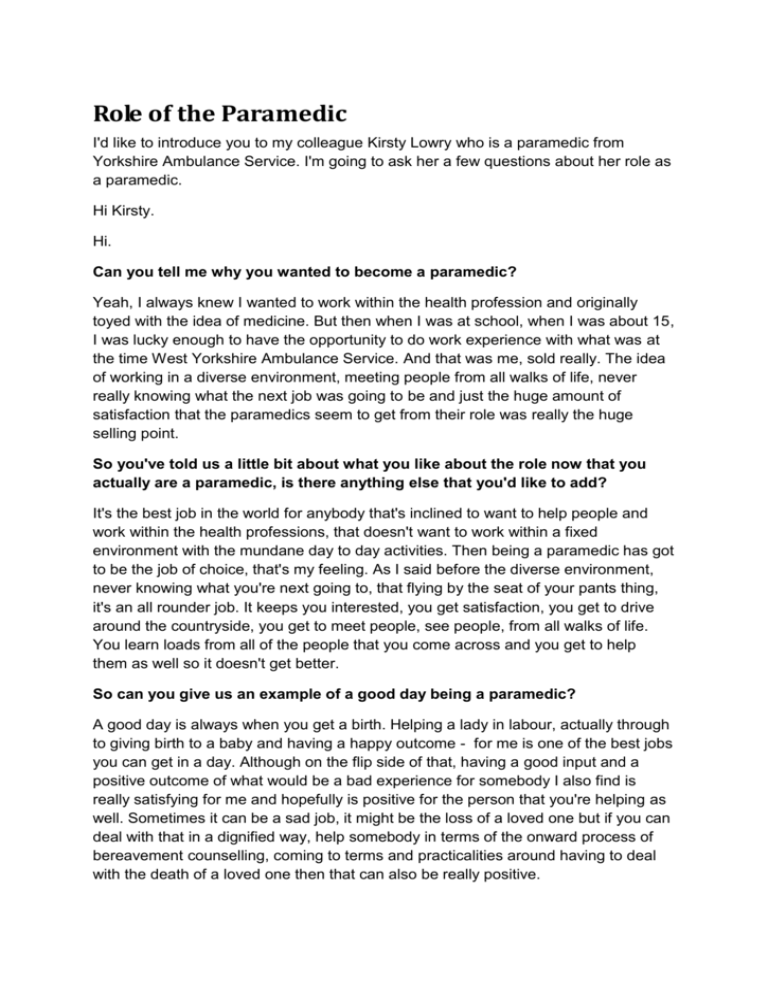
Role of the Paramedic I'd like to introduce you to my colleague Kirsty Lowry who is a paramedic from Yorkshire Ambulance Service. I'm going to ask her a few questions about her role as a paramedic. Hi Kirsty. Hi. Can you tell me why you wanted to become a paramedic? Yeah, I always knew I wanted to work within the health profession and originally toyed with the idea of medicine. But then when I was at school, when I was about 15, I was lucky enough to have the opportunity to do work experience with what was at the time West Yorkshire Ambulance Service. And that was me, sold really. The idea of working in a diverse environment, meeting people from all walks of life, never really knowing what the next job was going to be and just the huge amount of satisfaction that the paramedics seem to get from their role was really the huge selling point. So you've told us a little bit about what you like about the role now that you actually are a paramedic, is there anything else that you'd like to add? It's the best job in the world for anybody that's inclined to want to help people and work within the health professions, that doesn't want to work within a fixed environment with the mundane day to day activities. Then being a paramedic has got to be the job of choice, that's my feeling. As I said before the diverse environment, never knowing what you're next going to, that flying by the seat of your pants thing, it's an all rounder job. It keeps you interested, you get satisfaction, you get to drive around the countryside, you get to meet people, see people, from all walks of life. You learn loads from all of the people that you come across and you get to help them as well so it doesn't get better. So can you give us an example of a good day being a paramedic? A good day is always when you get a birth. Helping a lady in labour, actually through to giving birth to a baby and having a happy outcome - for me is one of the best jobs you can get in a day. Although on the flip side of that, having a good input and a positive outcome of what would be a bad experience for somebody I also find is really satisfying for me and hopefully is positive for the person that you're helping as well. Sometimes it can be a sad job, it might be the loss of a loved one but if you can deal with that in a dignified way, help somebody in terms of the onward process of bereavement counselling, coming to terms and practicalities around having to deal with the death of a loved one then that can also be really positive. These new students that you may see while you are out in your role as a paramedic and a paramedic tutor, as Kirsty is a tutor as well with Yorkshire Ambulance Service, what are you expecting of these students when they are out in placement? I think, just because the individuals are students, doesn't give them carp blanch to behave in a less professional way than any other clinician within the service whether they are a paramedic, technician or assistant practitioner. At the very least you would expect them to be appropriately dressed, appropriately presented, you’d expect them to act professionally at all times, communicate appropriately, using appropriate language. You'd expect some degree of knowledge around the basic equipment within the ambulance, the ability to speak on the radio, those sorts of things when required. Obviously not at the very beginning, they'll be supported through learning those procedures and use of equipment etc. but you would expect them to muck in really, to become part of the crew, to understand when it's not appropriate for them to be getting too involved and to understand when you do need assistance and they really should be getting involved. I think the big thing really is that they need to understand that unfortunately for them, right from day one, they need to act as professionally as everybody else. What we can't do is make allowances, we're dealing with real people, in real situations, that are having real experiences. So right from the very beginning, they need to appreciate that and act appropriately because their actions and words, even flippant comments, can last a lifetime with an individual that picks up on that in a traumatic situation. So it's a huge burden for them initially but something that they need to grasp very quickly. Okay thank you for that Kirsty, and hopefully you found that useful of understanding the role of the paramedic.
